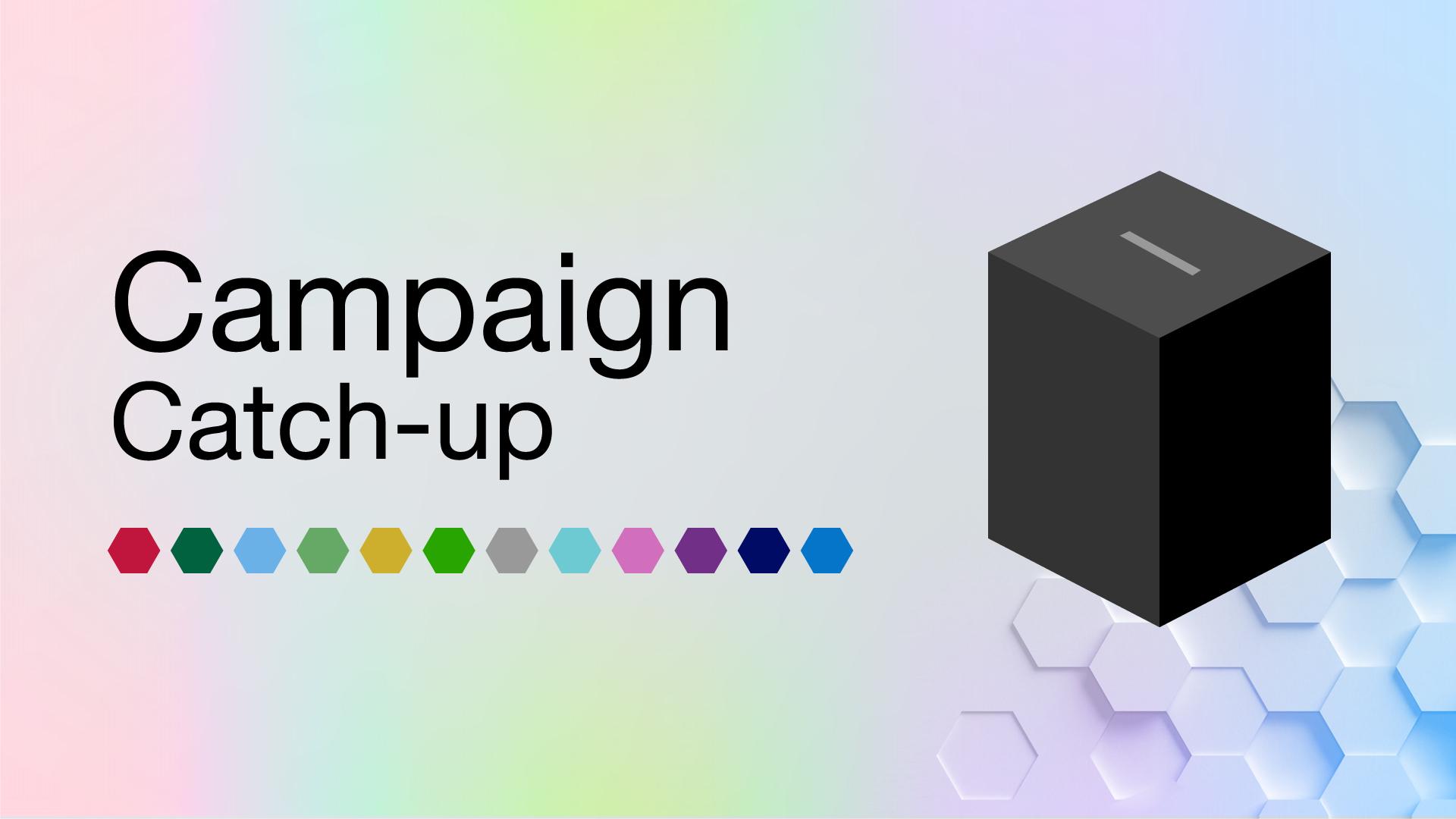NI Assembly election: Campaign grinds into gear
- Published
Hopefuls face health workers at hustings
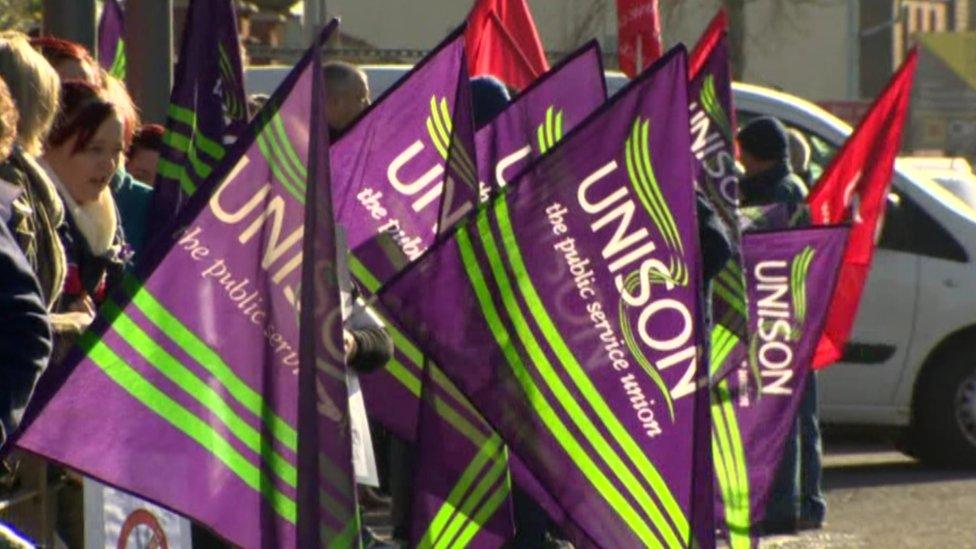
Parties must reach a deal to restore power-sharing at Stormont, Unison members said
Slowly but surely, the wheels are beginning to turn on this Northern Ireland Assembly election trail.
Beyond the Democratic Unionist Party (DUP) and Sinn Féin exchanging crocodile snaps at the start of the week, the campaign so far has been more boring than brutal.
But the hustings have begun, and trade union members were putting their questions to election hopefuls at Unison's headquarters in Belfast on Friday.
Effective power-sharing was high on the agenda, and as far as healthcare workers are concerned the political parties must reach a deal in the post-election talks.
Conor McCarthy, from the union's Royal Victoria Hospital branch, said a failure to break the deadlock and a resulting return to direct rule is not an option.
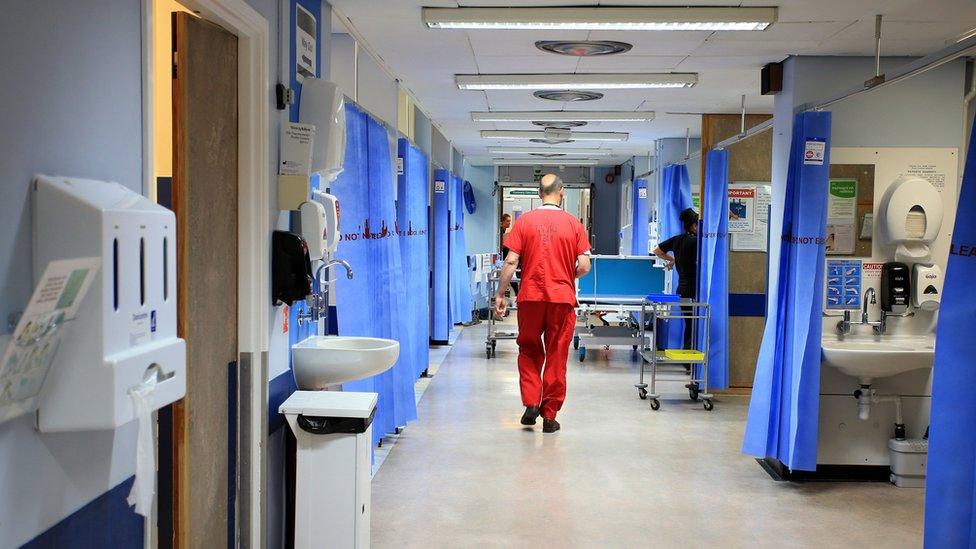
Direct rule would see Northern Ireland's public services starved of funding, Conor McCarthy said
"The two main political parties are actually running on this campaign telling the public what they won't do if they're voted back into power," he said.
"That's unacceptable - we want to see what they will do.
"Regardless of who's first minister or deputy first minister, the cornerstone of success and sustainability is genuine power-sharing - not based on a foundation of sand, but genuine, strong partnership."
Stephanie Greenwood, from Unison's Northern Health Trust branch, said union members wanted to see an anti-poverty strategy as a priority for any new executive.
"Poverty remains a hugely significant problem for Unison members and their families, and our members are struggling with low pay, tax credits and cuts," she added.

Political posts are pitfalls, charities warned
Charities have been warned not to align themselves with parties or candidates during the election campaign after some made posts with a political slant on Facebook and Twitter.
The law forbids charities from becoming involved in party politics, but they can engage in political campaigning to achieve their purposes.
It is "fundamental to public trust and confidence" that charities remain independent and neutral, the Charity Commission for Northern Ireland said.
Francis McCandless, the regulator's chief executive, said: "They cannot endorse a candidate, they cannot endorse an entire party."
Some breaches of the rules charities are bound by are made unwittingly, she added.
"We've seen an example where a charity wanted to say thank you to someone who had helped them out.
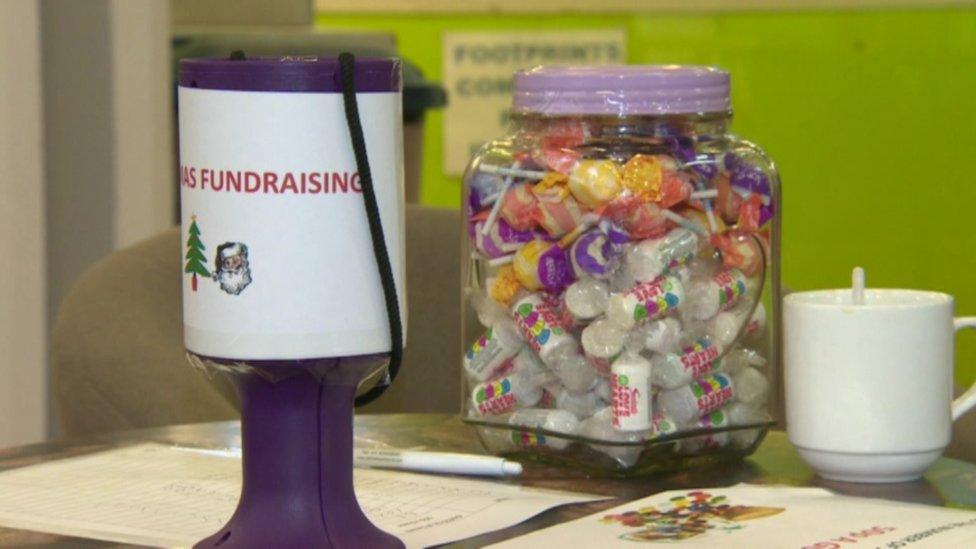
Charities must not pursue a political purpose and cannot endorse election candidates
"They posted a picture of an election poster of the person, who was standing as a candidate - they said they just didn't think.
"On the other end of the spectrum, you may get individuals who want to use the charity as a vehicle to get support for their campaign.
"The charity may allow itself to be used as that kind of vehicle, either knowingly or unknowingly."
Social media is a "risky area" for charities, Ms McCandless said, because it is "so easy to retweet or repost something and that strays over the line".
"Trustees probably wouldn't sit down and decide to spend their money publishing a leaflet to support a candidate - they know they wouldn't do that.
"But they don't think of a social media post in the same bracket.
"Actually, it is - you're using the name of the charity to endorse this person or this party."

Dubious Jim lays challenge to DUP
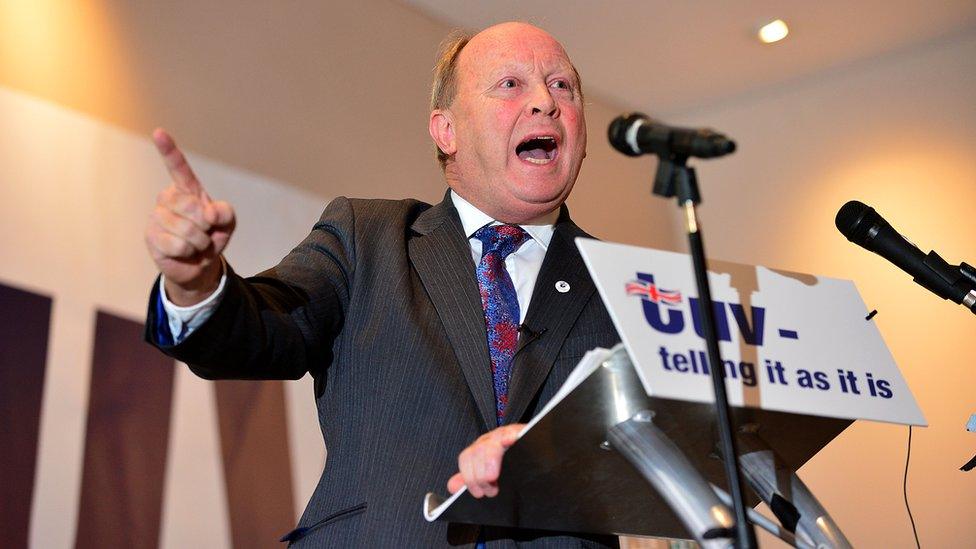
Jim Allister said the DUP should say it will not nominate a deputy first minister if Sinn Féin tops the election
Jim Allister has questioned whether the DUP's claim that Sinn Féin could take the post of first minister after the election is genuine.
The Traditional Unionist Voice leader laid down a challenge to the DUP, saying it should refuse to go into power with Sinn Féin if the republican party comes out on top after polling day on 2 March.
"If they are so opposed, as they ought to be, to a Sinn Féin first minister, then the answer is in their own hands," he said.
"Let them now declare to the electorate that they will not nominate a deputy first minister - that blocks Sinn Féin from ever being first minister," he said.
"Or, if it's just a bogeyman they're creating in order to try and scare people into voting for them, as they've done so often, then the people need to see through that."
You can hear the full interview with Mr Allister, along with an interview with Ulster Unionist leader Mike Nesbitt, on BBC Radio Ulster's Inside Politics.

BBC News NI's Campaign Catch-up will keep you across the Northern Ireland Assembly election trail with a daily dose of the main stories, the minor ones and the lighter moments in the run up to polling day on Thursday 2 March.
Hear more on BBC Radio Ulster's Good Morning Ulster and BBC Radio Foyle's The Breakfast Show at 07:40 GMT, and on BBC Radio Ulster's Evening Extra at 17:40 GMT each weekday.
- Published10 February 2017
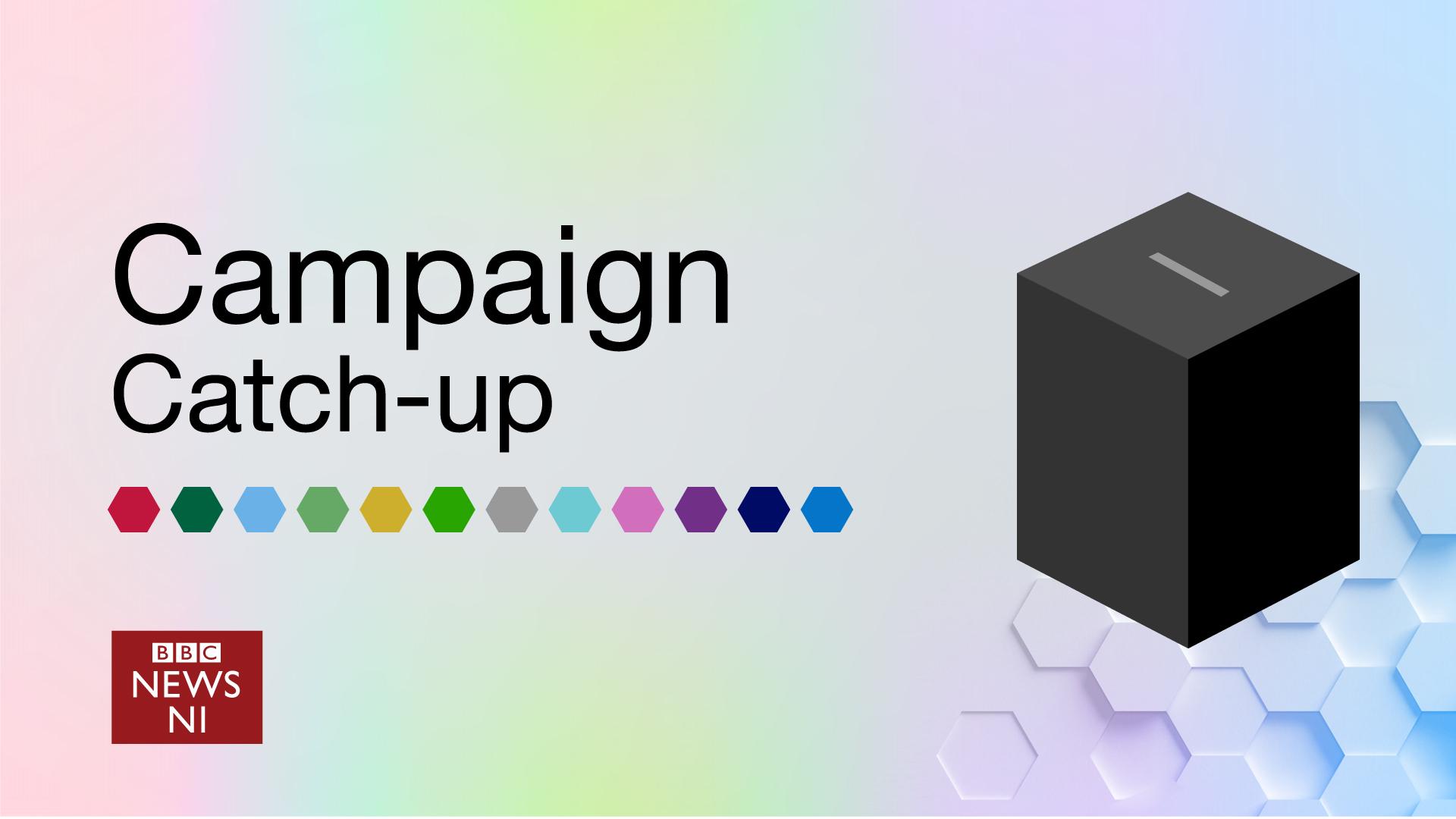
- Published9 February 2017

- Published7 February 2017

- Published6 February 2017
